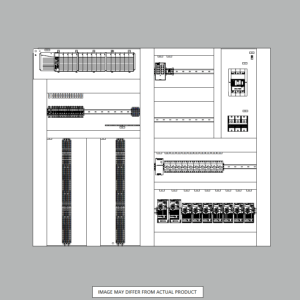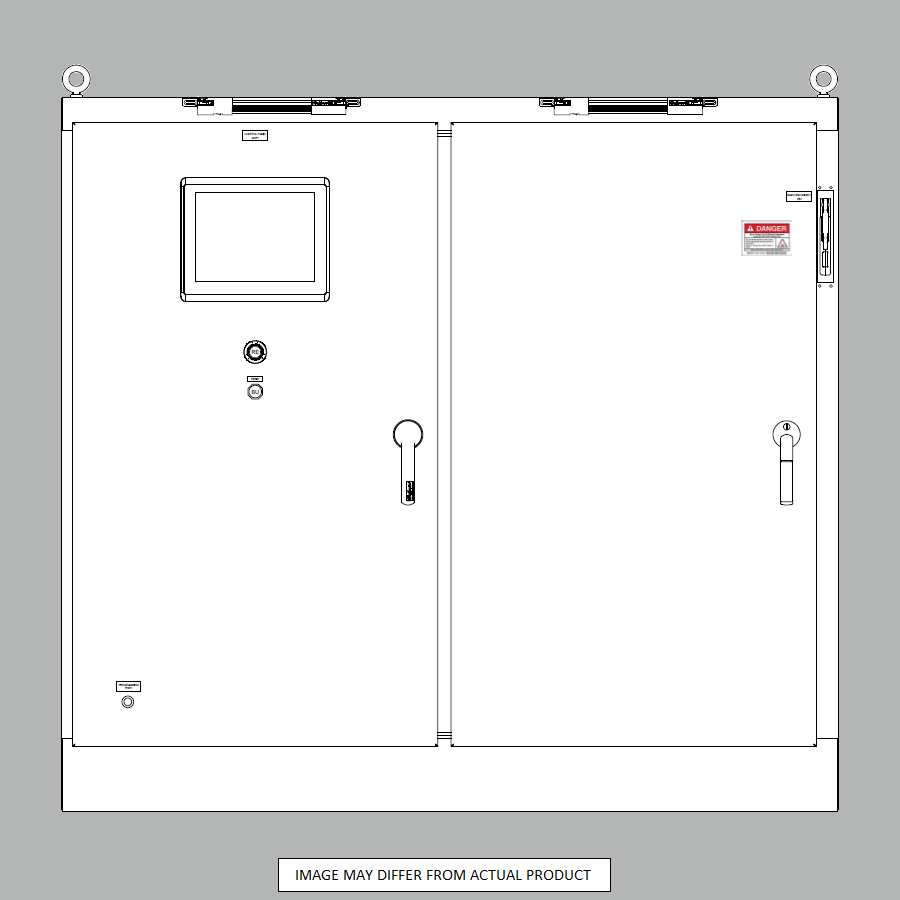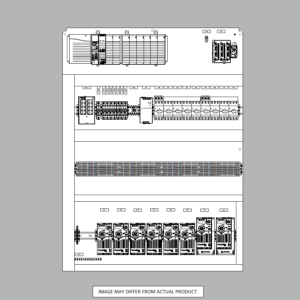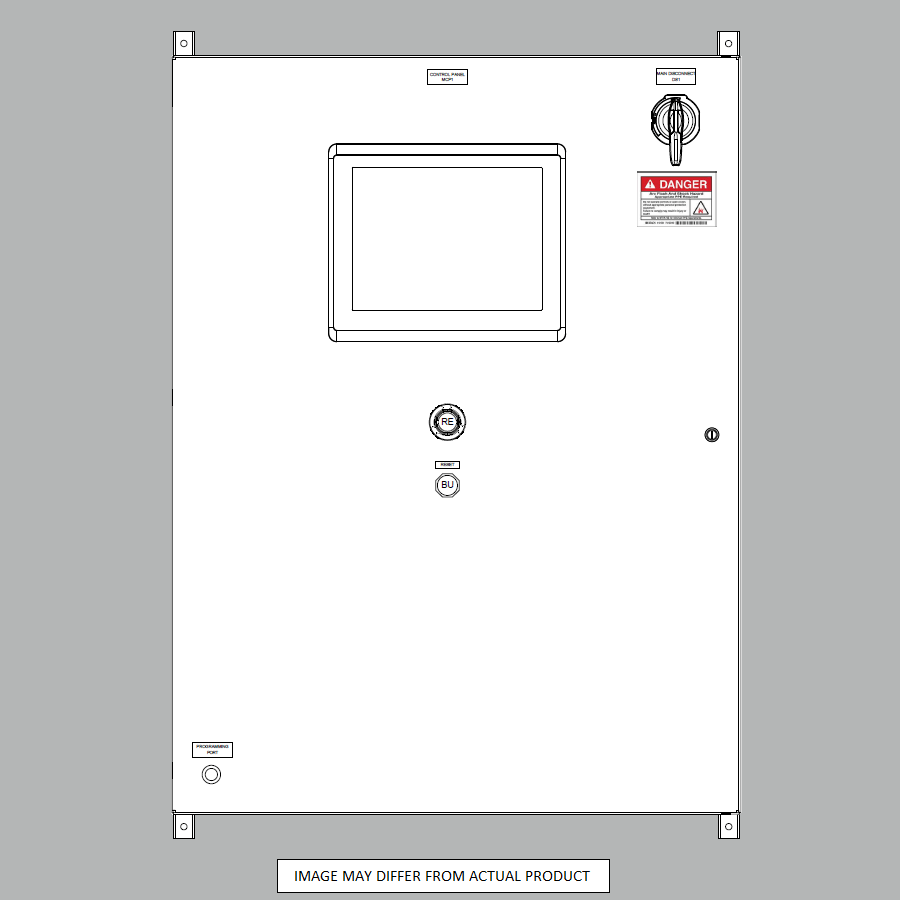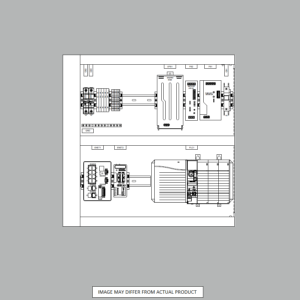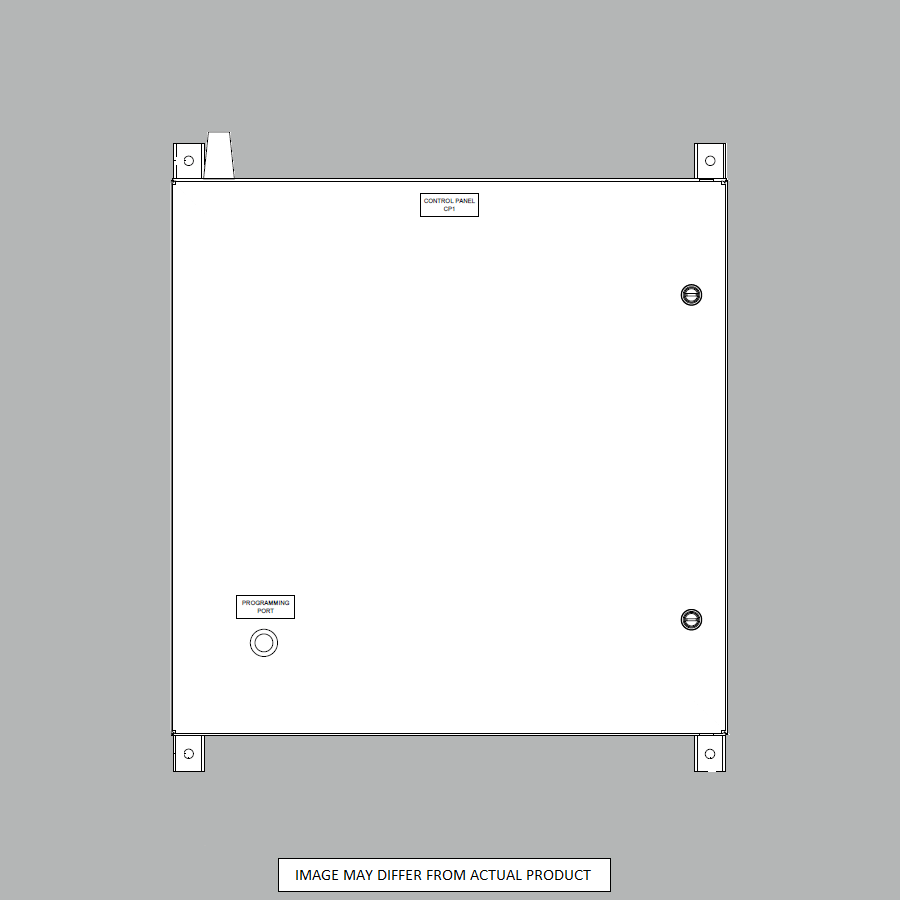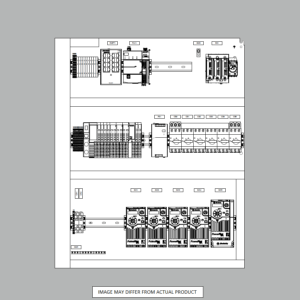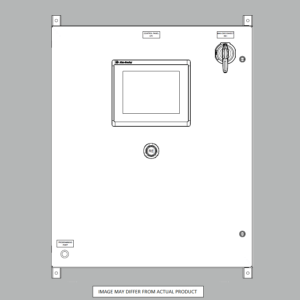Become a PLC Programming Expert with Online PLC Certificate Courses
In today’s increasingly automated world, Programmable Logic Controllers (PLCs) are crucial in controlling and monitoring various industrial processes. As a result, skilled PLC programmers are in high demand across diverse sectors, including manufacturing, automation, and electronics. If you want to enhance your technical skills and knowledge in this field, an online PLC programming certification course could be the perfect solution.
This comprehensive article will guide you through the world of online PLC programming certifications and explain why pursuing an online certification course is a worthwhile investment. We’ll explore the key benefits, course content, and potential career opportunities that await you upon completing a certificate of completion.
What is PLC Programming?
A Programmable Logic Controller (PLC) is a digital computer that automates industrial processes, such as manufacturing assembly lines or robotic devices. PLCs are designed to control and monitor various components and systems through user-created software instructions or programs.
PLC programming involves writing and implementing these software instructions, often using ladder logic or other programming languages, to control and automate industrial processes. This programming allows PLCs to read input signals from sensors and devices, execute programmed instructions, and generate output signals to control connected equipment or machinery.
Why Pursue an Online PLC Programming Certification?
A PLC programming certification can give you a significant advantage in today’s fast-paced and competitive job market. Here are some compelling reasons to consider pursuing an online certification:
- Enhance Your Skills and Knowledge: An online course offers a structured and comprehensive learning experience, equipping you with the fundamental concepts, programming techniques, and practical skills needed to become a proficient PLC programmer.
- Flexible and Convenient: Online courses allow you to learn independently, fitting your studies around your existing work or personal commitments. This flexibility particularly benefits those who cannot attend traditional classroom-based programs.
- Affordable and Accessible: Online courses are generally more cost-effective than traditional programs, making quality education accessible to a wider audience. You can also study from the comfort of your home or any location with an internet connection.
- Industry-Recognized Credentials: Many online PLC programming certification courses are designed in collaboration with industry leaders and accredited institutions, ensuring that the knowledge and skills you acquire are relevant and respected by potential employers.
- Career Advancement: A PLC programming certification demonstrates your expertise and commitment to professional development, potentially opening doors to new job opportunities, promotions, or higher salaries within the automation and control systems industries.
Key Benefits of an Online PLC Programming Course
Enrolling in an online PLC programming course can provide numerous benefits, including:
- Comprehensive Curriculum: A well-designed course covers various topics, from the basics of PLC programming and ladder logic to advanced programming techniques, troubleshooting, and maintenance procedures.
- Hands-On Learning: Many online courses incorporate simulation software or virtual environments, allowing you to practice programming and control various PLC systems without needing physical equipment.
- Instructor Support: Experienced instructors provide guidance, answer questions, and offer feedback throughout the course, ensuring a thorough understanding of the material.
- Flexible Scheduling: Online courses often offer self-paced learning options, allowing you to study at a time and pace that suits your schedule.
- Access to Learning Materials: Course materials, including recorded lectures, tutorials, and assignments, are typically available online, enabling you to review and reinforce your learning anytime.
What Does a Typical Course Curriculum Cover?
While course curricula may vary among different providers, a comprehensive online PLC programming certification course typically covers the following topics:
- Introduction to PLCs: Understanding the fundamentals of PLCs, including their components, architecture, and applications in industrial automation.
- Programming Languages and Software: Exploring various PLC programming languages, such as ladder logic programming, structured text, and function block diagrams, and programming software like RSLogix from Rockwell Automation or TIA Portal from Siemens.
- Input/Output (I/O) Configurations: Learning to configure and address various input and output devices, including sensors, switches, and actuators.
- Programming Concepts and Techniques: Mastering programming concepts like timers, counters, data manipulation, and program flow control, as well as advanced techniques like analog programming and communication protocols.
- Program Development and Documentation: Understanding program development methodologies, including coding best practices, documentation standards, and version control.
- Simulation and Debugging: Utilizing simulation software to test and debug PLC programs before implementing them in real-world systems.
- Maintenance and Troubleshooting: Developing skills in troubleshooting and maintaining PLC systems, including fault diagnosis, system updates, and backup procedures.
- Industrial Applications: Exploring real-world applications of PLCs in various industries, such as manufacturing, packaging, and materials handling.
Different PLC Programming Software and Manufacturers
While the fundamentals of PLC programming remain consistent across different platforms, each manufacturer offers its own proprietary software and programming languages. Some of the most widely used PLC programming software and manufacturers include:
- Rockwell Automation (Allen-Bradley): RSLogix 5000, RSLogix 500, and Studio 5000 are popular software platforms for programming Rockwell Automation’s ControlLogix and CompactLogix PLCs.
- Siemens: STEP 7 and TIA Portal are the primary software platforms for programming Siemens PLCs, such as the S7-300, S7-400, and S7-1500 series.
- Mitsubishi Electric: GX Works2 and GX Works3 are used for programming Mitsubishi PLCs, including the FX and Q series.
- Omron: CX-Programmer is the software used for programming Omron’s PLC models, such as the CP1E and CJ series.
- Schneider Electric: Unity Pro is the software platform for programming Schneider Electric’s Modicon PLCs, including the M340 and M580 series.
It’s important to note that many online PLC programming courses focus on one or more of these popular platforms, providing you with hands-on experience and industry-relevant skills.
Hands-On Training and Simulation Software
Practical experience is crucial in mastering PLC programming. Online courses often incorporate hands-on training and simulation software to provide a realistic and interactive learning environment. Some common approaches include:
- Virtual PLC Simulators: These software applications simulate the behavior and functionality of real PLCs, allowing you to write, upload, and test your programs without needing physical hardware.
- Interactive Programming Environments: Many courses offer online programming environments where you can write, debug, and run your PLC programs directly within the learning platform.
- Remote Lab Access: Some online programs provide remote access to actual PLC hardware or training rigs, enabling you to program and control real PLCs from anywhere with an internet connection.
- Programming Assignments and Projects: Coursework often includes programming assignments and projects that challenge you to apply your skills to real-world scenarios, reinforcing your understanding and problem-solving abilities.
These hands-on components are essential for developing practical skills and gaining confidence in PLC programming, preparing you for industry-level projects and job responsibilities.
Career Opportunities for Certified PLC Programmers
Upon completing an online PLC programming certification course and earning a certificate of completion, you’ll be equipped with valuable skills and knowledge that can open doors to various career opportunities. Some potential roles include:
- PLC Programmer: As a PLC programmer, you’ll develop, test, and implement PLC programs to control and automate industrial processes in manufacturing plants, production facilities, or other automation environments.
- Control Systems Technician: In this role, you’ll be involved in the installation, maintenance, and troubleshooting of PLC-based control systems, ensuring efficient and reliable operation.
- Automation Engineer: Automation engineers design and implement automated systems, integrating PLCs with other components such as robots, conveyors, and material handling equipment.
- Electrical and Electronics Technician: With your knowledge of PLCs and control systems, you can pursue roles in electrical and electronics maintenance, troubleshooting, and repair.
- Industrial Maintenance Technician: As a maintenance technician, you’ll be responsible for maintaining, repairing, and optimizing various industrial equipment and machinery, including PLC-controlled systems.
- Manufacturing Process Technician: In this role, you’ll monitor and optimize manufacturing processes, utilizing your PLC programming skills to enhance efficiency, quality, and productivity.
Your PLC programming certification can also be a foundation for further specialization or career advancement within the automation and control systems industries.
How to Choose the Right Online PLC Programming Course?
With numerous online courses available, selecting the right one can be daunting. Here are some factors to consider when choosing an online PLC programming course:
- Accreditation and Reputation: Research the course provider’s accreditation, industry recognition, and reputation. Look for courses offered by reputable universities, technical colleges, or industry-recognized organizations.
- Course Content and Curriculum: Evaluate the course curriculum to ensure it covers the topics and programming languages relevant to your career goals and industry needs.
- Instructor Qualifications: Look for courses taught by experienced instructors with industry experience and strong PLC programming backgrounds.
- Hands-On Training and Resources: Prioritize courses that offer hands-on training opportunities, such as simulation software, virtual labs, or remote access to real PLC hardware.
- Certification and Recognition: Determine if the course provides a recognized certification or certificate of completion upon successful completion, as this can enhance your credibility and employability.
- Student Support and Feedback: Consider the level of student support provided, including access to instructors, tutoring services, and student communities. Additionally, read reviews and feedback from previous students to gauge the course’s effectiveness.
- Flexibility and Pacing: Evaluate the course delivery format (self-paced or instructor-led) and the flexibility it offers to accommodate your personal schedule and learning style.
- Cost and Value: Compare the cost of various courses and consider their value regarding course content, resources, and certification opportunities.
By carefully evaluating these factors, you can select an online PLC programming course that aligns with your learning needs, career goals, and budget.
Is a Degree in Electrical Engineering Necessary?
While a degree in electrical engineering or a related field can benefit certain roles in the automation and control systems industries, it is not necessarily a prerequisite for pursuing a career in PLC programming.
Many employers value practical skills and hands-on experience over formal degrees regarding PLC programming positions. A comprehensive online PLC programming certification course can provide you with the necessary knowledge and skills to become a proficient PLC programmer, regardless of your educational background.
However, if you aspire to work in more advanced or specialized roles, such as control systems engineering or automation system design, a degree in electrical engineering or a related discipline may be advantageous or even required by some employers.
It’s essential to research the specific job requirements and industry standards in your region or desired field to determine the appropriate educational path for your career goals.
Continuing Education and Staying Up-to-Date
Automation and control systems are constantly evolving, with new technologies, programming languages, and industry standards emerging regularly. To maintain your competitive edge and stay relevant in the job market, embracing lifelong learning and continuous professional development is crucial.
Upon completing an online PLC programming certification course and earning your certificate of completion, consider the following strategies to keep your skills and knowledge up-to-date:
- Attend Industry Conferences and Seminars: Participate in industry events, conferences, and seminars to learn about the latest trends, technologies, and best practices in PLC programming and automation.
- Pursue Advanced Certifications: Explore opportunities to obtain advanced certifications or specializations offered by PLC manufacturers or industry organizations, demonstrating your expertise in specific areas or technologies.
- Join Professional Associations and Networks: Become a member of professional associations or online communities related to PLC programming and automation. These platforms offer access to valuable resources, networking opportunities, and ongoing learning opportunities.
- Engage in Self-Study and Online Resources: Utilize online resources, tutorials, webinars, and self-study materials to continually expand your knowledge and stay current with emerging programming techniques and industry advancements.
- Seek Mentorship and Collaboration: Connect with experienced professionals in the field who can provide guidance, mentorship, and opportunities for collaboration on real-world projects.
By actively pursuing continuous learning and professional development, you’ll maintain your relevance in the job market and position yourself for career growth and advancement within the dynamic field of PLC programming and industrial automation.
Summary
In conclusion, pursuing an online PLC programming certification course can be a valuable investment in your career development. By acquiring the necessary skills and knowledge in PLC programming, you’ll open doors to exciting opportunities in industries that rely heavily on automation and control systems.
Here are the key points to remember:
- PLCs are crucial in controlling and monitoring industrial processes, making skilled PLC programmers highly sought-after professionals.
- Online PLC programming courses offer flexibility, affordability, and comprehensive curricula covering various programming languages, software, and hands-on training.
- Career opportunities for certified PLC programmers include roles such as PLC programmer, control systems technician, automation engineer, and maintenance technician.
- When choosing an online course, consider factors like accreditation, course content, instructor qualifications, hands-on training resources, and certification or certificate of completion recognition.
- While a degree in electrical engineering can be beneficial, employers often value practical skills and certifications in PLC programming positions.
- Continuous learning and professional development are essential to stay up-to-date with emerging technologies and industry advancements in automation and control systems.
By embracing the world of PLC programming and pursuing an online certification course, you’ll equip yourself with valuable skills, knowledge, and credentials that can open up exciting career opportunities in this dynamic and ever-evolving field. If you’re looking for expert PLC programmers, don’t hesitate to contact us here at Automation Ready Panels.
-
Large Process Automation: Panelview 5000, ControlLogix 5580
$24,073.00 Select options -
Small Process Automation: Panelview 5000, ControlLogix 5580
$20,321.00 Select options -
Small Process Automation: ControlLogix 5580, UPS Battery Backup, Cellular Modem
$18,999.00 Select options -
Advanced Automation: Panelview 5000, Safety CompactLogix 5380
$10,269.00 Select options


